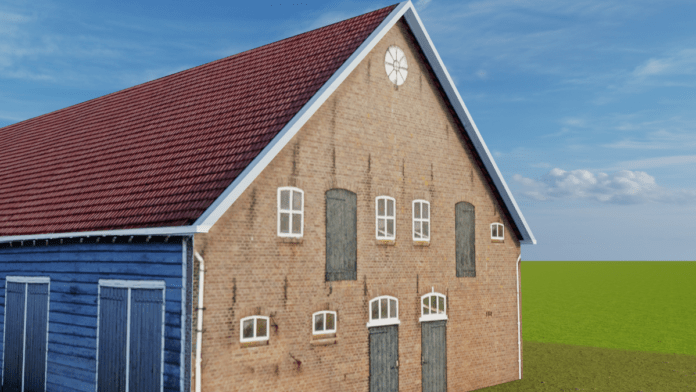You’ll probably be surprised at how much there is to know if you are just starting out with flipping and buying houses. Flipping houses is not as simple as you might think.
If you’re willing to take the time to learn the proper way to flip houses, it is possible to succeed. There are many ways to reduce your learning curve and to put in place safeguards to minimize your risk.
This article will show you how to flip your house, and what mistakes to avoid.
How House Flipping Works
House flipping is the act of buying distressed properties and fixing them up to resell for profit. These properties are often found through foreclosures, bank short sales, or property auctions.
You must be able to spend your money well and invest in low-value properties if you are going to make a living flipping houses. These properties are often very difficult to work on.
You will then need to make renovations that will increase its resale price and draw a buyer’s attention. After the renovations have been completed, it’s time to market the property.
Microflipping
It is possible to sell and buy properties without any renovations. Microflipping is a method of selling properties quickly that doesn’t require any renovations.
This is possible by analyzing data to identify potential opportunities to purchase property below its market value and then flip it quickly to another buyer. These homes are usually houses that don’t require major repairs.
Microflipping requires that you work quickly. Microflippers are able to process large volumes of real estate transactions and they are highly successful.
7 Steps to Start House Flipping
Before you can start flipping houses, it is important to know what the steps are. This will increase your chances of success and lower your risk. These are the seven steps to get started with house flipping.
1. Know your Neighborhood
You should spend some time researching the market and deciding where to invest. A real estate agent can help you with this.
It’s a smart idea to hire a general contractor to evaluate the property once you have found the home that you are interested in buying. This will allow you to estimate the cost of any work needed and determine if the house is within your budget.
2. To plan your budget, use the 70% rule
Real estate investors often refer to the 70% rule. The 70% rule stipulates that an investor should pay 70% of the after repair value (ARV) of a property, minus any repairs. After a home has been renovated, the ARV is its value.
Let’s take, for example, the AVR on a house is $200,000 and it requires $25,000 in repairs. The AVR of 70% is $140,000. Add the repairs and you get $115,000. You should not pay more than $115,000 to purchase this home.
3. Assess your Skill Set
You will be more successful as a house flipper if you have certain skills. Knowledge of real estate, construction, and design are all good skills. You don’t need to have these skills, but it’s fine to be able to identify professionals who do.
You should have a team of experts to help you before you start flipping houses. These could include lenders, real estate agents, and insurance agents.
4. Finance your Project
Next, you need to decide how you will finance your project. You will need to be preapproved for a loan if you don’t have enough cash to pay for the project. You will need to have a high credit score. The bank may also require a 20% downpayment or collateral.
5. Make a decision and buy your house
The most difficult aspect of flipping a home is finding the right property. This is because you don’t need to just consider how much the house currently costs. You also need to consider its potential resale price.
Foreclosed and Distressed are good options. To fully understand the scope of work required, you will need to consult a contractor and a real estate agent.
After you have found the perfect property, you can make an agreement and close the deal. You can expect competition from potential buyers if the house is really good. You should know the maximum price you are willing to pay for this house while still being profitable.
6. Increase sweat equity
You can save money if you are new to house flipping or have a limited budget by building sweat equity. This is the amount of unpaid labor that you will put into the project.
Entrepreneurs often find that sweat equity is essential to building a business. It gives them the energy and resources to continue building their business.
7. Flip the House
After the repairs are complete, it is time to sell the house. It is crucial to act quickly. The longer a home remains on the market, you will make less profit. Your goal should be to quickly make improvements and sell the home as soon as possible.
To help you sell your house, you will need to partner with a professional real estate agent. Raleigh real estate expert Gary Kevin Coats can help you decide the best resale value.
Cost of flipping a house
Costs for flipping a house vary depending on how much it costs to acquire the property, the repairs needed, and the time taken to sell the property. Let’s take a look at what you can expect when flipping a house.
Your Financial Investment
It’s all about the math when buying and flipping a home. It is important to realize that you will earn a profit in the end.
You should also consider the costs of renovating the house and the initial purchase price. These expenses should also be included in your budget:
- Deposit payment
- Property taxes
- Insurance payments
- Closing costs
- Utility costs
- Marketing costs
- Real estate agent fees
Your Time Investment
Flipping a house requires more than a financial investment. It also requires a significant time investment. It will take a different amount of time depending on how large and complex the project is.
You can expect to spend between six and twelve weeks buying and flipping a house if everything goes according to plan. This could be delayed if you have to approve a third party or the remodeling process is delayed.
Are you a good candidate for flipping houses?
Are you a good fit for flipping houses? The following chart will help you understand the pros and cons of flipping houses.
House flipping is a viable option if you have the right plan and are careful about the financials. This strategy is not going to make you rich overnight. You will likely make mistakes along the way and lose money.
This process can be made easier with the help of the right team. A qualified agent can provide insight into the local market and help buyers understand what type of homes they are looking for.
A good general contractor will be able to help you assess the condition of a house. This will prevent you from investing in a money pit. You should also consider your financing requirements ahead of time.




